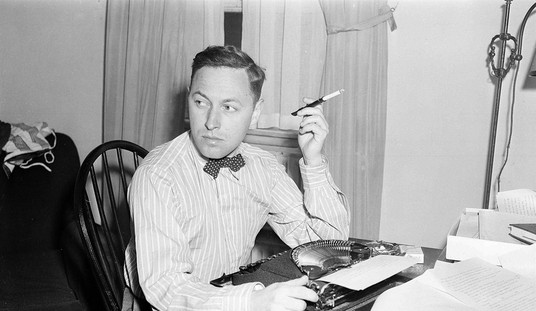WASHINGTON – An increasing number of attorneys general are refusing to defend state laws banning same-sex marriage, drawing fire from critics who believe it is their duty to protect these statutes against challenges under federal law.
Since two landmark decisions on same-sex marriage by the Supreme Court last year, gay marriage advocates have turned their attention to legal challenges to state laws prohibiting such unions.
After the Supreme Court left standing in June an order striking down California’s ban on gay marriage, without ruling whether similar laws should remain in place, federal appeals courts have been left dealing with the issue.
Gay couples are filing lawsuits in states where voters approved anti-gay marriage amendments to their state constitutions. Judges have recently struck down same-sex marriage bans in Kentucky, Ohio, Virginia, Oklahoma, Utah, and Texas.
The Supreme Court issued two major rulings on same-sex marriage last year. In United States v. Windsor, the court found unconstitutional a part of the Defense of Marriage Act (DOMA), which withheld federal recognition of same-sex marriages and denied federal benefits to those in such unions.
In the other case, the Supreme Court allowed to stand a federal judge’s opinion that California’s Proposition 8, which bans same-sex marriage, was unconstitutional.
In 2011, Attorney General Eric Holder refused to defend DOMA in court, but announced the Department of Justice would continue to enforce the law while it existed.
Same-sex marriage is legal in 17 U.S. states and the District of Columbia.
The nation’s highest court has not weighed in on whether same-sex couples have a constitutional right to marry, shifting the legal battleground, for now, to the states.
Six attorneys general – all Democrats – have decided against defending their states’ gay marriage bans from challenges. Attorneys general in Nevada, Oregon, Pennsylvania and Virginia have refused to defend bans on gay marriage. Similarly, attorneys general in California and Illinois refused to defend bans that were later overturned by the states.
Speaking in a panel discussion at the Heritage Foundation on Friday, former Virginia Attorney General Ken Cuccinelli said attorneys general can only decline to defend laws that are “blatantly unconstitutional.”
“The standard for attorneys general declining to defend state law or constitutional provision has been consistent for many years,” Cuccinelli said. “An attorney general must defend anything not blatantly unconstitutional, not ones that he or she really want to be unconstitutional, but that it is, as a matter of objective law, clearly against the Constitution.”
Last month, Holder said in a New York Times interview that state attorneys general do not have to defend laws they consider discriminatory, including bans on gay marriage. A few days later, Holder argued in a speech to the National Association of Attorneys General that laws distinguishing among people based on their sexual orientation violate the Constitution’s equal protection clause, citing the Supreme Court’s decision in United States v. Windsor.
Ed Whelan, president of the Ethics and Public Policy Center, said Holder was setting a bad example and “inciting” state attorneys general not to defend laws.
“What better way to signal that this cause [gay marriage] is beyond defense than to bully or invite compliant state attorneys general to throw in the towel?” Whelan said.
Mark Herring, Virginia’s new attorney general, refused to defend the state’s prohibition on same-sex marriage a few days after taking office in January.
“This is really legal ethics 101,” Whelan said. “A lawyer is ethically obligated to represent his client’s legal position zealously in court. Under narrow circumstances a lawyer may withdraw, but a lawyer may never fail to advocate a defensible position that is in the client’s interest simply because [he or she] believes it to be legally incorrect.”
Herring also announced he would side with plaintiffs in lawsuits challenging the ban. In a statement announcing his decision, Herring said his state has argued on the wrong side of some of the nation’s landmark cases and that it was “time for [Virginia] to be on the right side of history and the right side of the law.”
Cuccinelli criticized Herring for not standing aside when he decided not to defend Virginia’s constitutional ban and statutory prohibition on same-sex marriage, but instead, Cuccinelli argued, Herring chose to “attack” it.
“I’m unaware prior to his act of any attorney general in America ever doing this,” Cuccinelli said. “If he truly believed in the constitutional position he held, his proper course of action is simply to step out of the case. Instead, he switched sides and it’s actually attacking Virginia’s constitutional amendment.”
The amendment banning such unions in Virginia passed in 2006 with the support of 57 percent of the voters. Herring voted for the amendment when he was a state senator.
Cuccinelli said in his four years as Virginia’s attorney general he only failed once not to defend a constitutional provision and that was because he found the law unconstitutional. He decided not to defend a law that allows the state to take control of failing schools, which is still being litigated.
“When they passed [this law] I stood aside for others to defend it because I do not believe it is defensible,” he said.
A federal judge struck down Virginia’s ban on same-sex marriage last month, ruling that the amendment adopted by voters is unconstitutional. The 4th U.S. Circuit Court of Appeals announced last week it will hear appeals to the ruling declaring the ban unconstitutional in May. Gay couples in Virginia still cannot marry until the case is ultimately resolved.









Join the conversation as a VIP Member